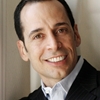"Fine" is a four-letter word that begins with F.
When it comes to succeeding in today's competitive marketplace, "fine" is just as vulgar and undesirable as the other four-letter word that begins with F. If your reputation is "fine," you're in trouble. People rarely get excited in life about things that are fine, and they rarely have emotional connections to them.
Include with "fine" words like OK, adequate, acceptable. And remove all of them from your vocabulary.
If you were to win the marketer of the year award this year, what would you win for?
Those of you who have spent some time in the corporate world have been conditioned to become "fine" by focusing on your weaknesses. Let me explain. When you met with your manager for your most recent annual review, she told you how fantastic you are and then identified the areas where you need to improve. She then worked with you or asked you to develop your professional development plan to improve in those areas.
Marcus Buckingham, coauthor of Now Discover Your Strengths, says this: "Guided by our parents, our teachers, our managers and by psychology's fascination with pathology, we become experts in our weaknesses and spend our lives trying to repair these flaws, while our strengths lie dormant and neglected."
Working on improving your weaknesses will help you become better at the skill you weren't excelling at. Over time, you will improve in a lot of these areas, and you will come eliminate some of your weaknesses.
This is great if your goal is to be known as the person who is average at a lot of things. But think about it. Do you ever get excited about things that are average? Are you loyal to products that are fine? Do you think Apple's evangelists would be more attached to Apple if it spent less time being creative and innovative? Would Ritz Carlton customers become more loyal if it changed its focus from being the best in delivering superior service?
Now don't get me wrong. If you have weaknesses that are getting in the way of your success, by all means work on them. If, for example, your goal is to be the business development manager for your company but your presentation skills are horrendous, you will have a hard time ascending to that role, because making presentations is an essential skill for developing business.
Enhancing Your Strengths
But once you know that you have all the skills that are essential to attaining your goals, focus your professional development on enhancing your strengths. This is essential to building your reputation and expanding your success.
We all know people who are closely associated with the things they excel in. Thinking back to my various jobs in the corporate world, I remember numerous people because of their tremendous strengths.
There was Carol who was the best storyteller I ever met. She could turn any marketing campaign into a powerful story that no product manager could reject.
There was Bryan, whose presentations were like Seinfeld episodes. They started out with three independent stories that somehow connected in the end in an incredibly witty and poignant message. He kept his audience riveted throughout the entire presentation.
And there was Nancy, a marketing director who had a solid relationship with every member of the sales team. She knew what they sold, who their customers were, how many kids they had. Her memory was an amazing and powerful tool for building solid relationships.
What if you were to take a radical approach to professional development and, instead of focusing on your weaknesses, actually spent time on things you are already really good at. Now, instead of being good, you'll be outstanding, incredible, amazing. You can become the person who builds a reputation around what makes you exceptional.
But first you must know what your strengths are. Management philosopher Peter Drucker says, "Most [people] do not know what their strengths are. When you ask them, they look at you with a blank stare, or they respond in terms of subject knowledge, which is the wrong answer."
If you are the most creative copywriter, focus on that. If you are the most efficient and organized account executive, make that fact more visible. If you are the zany team leader who gets all of the company functions talking and laughing, be more of what you are.
Just don't be fine.
Eliminating the F-Word: a Five-Step Plan
- Know your strengths. You can't work on maximizing your strengths if you don't know what they are. Take an inventory of your strengths and get input from those around you. One resource is Now Discover Your Strengths by Buckingham and Clifton.
- Determine which strengths will help you most effectively reach your goals. Focus on maximizing the ones that are differentiating and compelling.
- Build and implement a plan to maximize your strengths. If you are the most globally sensitive account director, take more foreign-language courses, spend time visiting more countries, learn about cultures you are unfamiliar with. Identify the activities you will undertake, and then plan them into your schedule.
- Integrate your strengths into everything you do. If your strength is your ability to use humor to bring a group together, inject more humor into your presentations, your emails, your office environment.
- Measure your success. After you have switched your energy to your strengths, ask yourself whether you are more fulfilled, and more successful.




